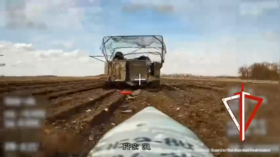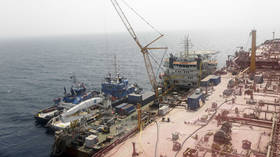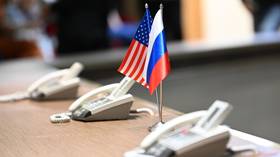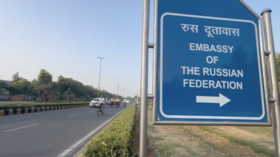Australian health minister declined invite to meet Pfizer bosses in 2020, leading to vaccine shortages and lockdowns – opposition
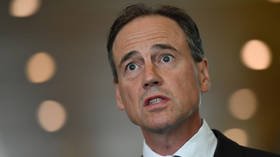
The Australian health minister reportedly delayed meeting with top Pfizer executives last year, which the opposition claims contributed to vaccine supply shortages and extended lockdowns in the country.
The accusation was made after the Australian Labor Party released emails under freedom of information laws, which suggest the government delayed high-level meetings with the vaccine manufacturer that the opposition say could have alleviated supply shortages.
The federal opposition party criticized Prime Minister Scott Morrison’s government on Wednesday after releasing emails between the Health Department and Pfizer, suggesting consequential delays on the part of the government.
Australia has had strict lockdowns imposed throughout the country and has closed its borders since the pandemic began. Melbourne, for example, is approaching its 250th day in lockdown.
The country’s notorious regional lockdowns will only be alleviated once 70-80% vaccination rates are achieved. However, it has so far vaccinated just 36% of its citizens over 16. The slow rollout is largely due to supply issues, and the nation lags behind the likes of Spain and the UK, which have vaccinated 70% and 65% of their citizens, respectively.
One of the contributing factors for the low inoculation rate has been skepticism arising from the association of rare blood clots with AstraZeneca, as well as low supplies of Pfizer’s vaccine.
The June 2020 emails detail exchanges between the vaccine conglomerate and Health Minister Greg Hunt’s First Assistant Secretary Lisa Schofield. After some days without response after contacting the Australian Health Department, Pfizer stressed that the vaccine landscape was “moving swiftly” and that they were engaging with other countries.
Subsequent emails requested Minister Hunt’s presence at meetings, which was refused. Instead, his first assistant secretary said she would appreciate the opportunity to discuss the matter some days later.
Pfizer outlined in the emails that it had “the potential to supply millions of vaccine doses by the end of 2020,” and that this could be rapidly scaled up to “produce hundreds of millions of doses in 2021.”
The Health Department has said it procured 10 million doses in November 2020. However, Labor is claiming that “deals weren’t signed until Christmas Eve.”
The Labor Party has argued that the delay in responding to Pfizer, as well as a lack of commitment to the opportunity presented, is a major reason why more than half of Australia is still in lockdown more than one year on.
Also on rt.com Indigenous health bodies SLAM Australian govt’s ‘joke’ response to Covid outbreak in remote communities despite 18 months’ notice“Documents released today confirm that Australians are locked down because the Morrison-Joyce Government didn’t think it was a priority to meet with Pfizer last year,” tweeted Labor Senator Penny Wong on Tuesday.
Labor Party leader Anthony Albanese described the delays as “unbelievable,” claiming the Morrison government has put Australia “months behind other countries.”
A spokesperson for Minister Hunt denied Labor’s accusations of neglect, saying “the department has been actively engaged with Pfizer since very early in the pandemic,” adding that there had been informal arrangements in place. The government said that the “potential to supply millions of vaccine doses by the end of 2020” referred to Pfizer’s international production capacity, and not its offer to Australia.
At the end of August, Prime Minister Scott Morrison had to secure a deal with Singapore for 500,000 Pfizer doses to compensate for a lack of supply.
The government was also criticized by indigenous Australians, who have received far fewer vaccines than their non-indigenous counterparts. The vaccination rate in indigenous communities around Australia is 20% lower than among non-indigenous cohorts.
Like this story? Share it with a friend!



